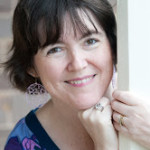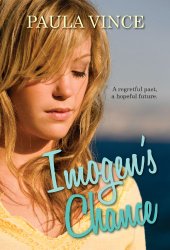 Today we have with us one of the darlings of Australia’s inspirational fiction community, award winning author Paula Vince. Paula is a gracious advocate of Australian writers (and writers in general), and is consciously active in her support, including through her blog and review site. It’s wonderful to have her guest blogging today. Read on for reflections from her ‘write life’ experiences.
Today we have with us one of the darlings of Australia’s inspirational fiction community, award winning author Paula Vince. Paula is a gracious advocate of Australian writers (and writers in general), and is consciously active in her support, including through her blog and review site. It’s wonderful to have her guest blogging today. Read on for reflections from her ‘write life’ experiences.
I must admit that what I like least, even after several years of writing, is the question, ‘What is your occupation?’ My heart still lurches when anybody asks me that, probably because I’ve become used to either one of two polar opposite responses. Some people say, ‘Wow, you’re kidding me! You’re really a writer? That’s amazing.’ Then they follow up with more questions concerning wages and platforms which I feel inevitably help me lose face.
The second type of response is a cynical looking, ‘Yeah, right, sister,’ sort of smirk and rolling of the eyes. Without having to put it into words, these people might as well say, ‘You live in a dream world, so get real,’ which I find highly embarrassing.
Sometimes I feel it must be much easier for people who are able to reply, ‘hairdresser’, ‘chef’, ‘bank teller’ or any of a number of other socially acceptable occupations. I’ve wondered why this simple question about my occupation evokes these yo-yo reactions from others. I think it must be because emotions are the raw materials fiction authors work with, so it can’t help but draw an emotional sort of response. I have to remind myself that this is a very good thing. It’s healthy for us to get our emotions stirred up. Not only does a good novel strengthen our empathy muscles, which sometimes get slack, but it makes life more fascinating. As authors, we are dealing with things beneath the surface, but we don’t always get credit for positive change we’ve been responsible for.
I like to remember what stimulated me to want to write novels in the first place. The work of other fiction authors helped rescue what might otherwise have been a bit of a drab and downtrodden childhood. Firing up my imagination with other people’s stories made me so happy I always wanted to do the same. Although we might not be providing direct assistance, such as food, clothing and shelter, to others, it’s a big mistake to think that we’re just wallowing in a self-indulgent world of our own. Nothing could be further from the truth. The services fiction authors offer to the community are of immense value.
Many of our friends and acquaintances wear socially acceptable masks, becoming clones of media darlings or surging along with the crowd. It’s hard to really be sure what makes them tick. Fictional characters give us an outlet to feel things. We are able to delve directly into their deep inner hearts. It might be the best chance some readers get to put themselves in the shoes of others. Every so often, I get a lovely comment, such as, ‘When your hero faced that situation when so-and-so happened, my heart stood still. I was really cheering him on.’ Then I’m reinforced that I’m doing the right thing. It makes up for those awkward, ‘What is your occupation?’ sorts of questions.
 Paula Vince is a South Australian author of contemporary, inspirational fiction. She lives in the beautiful Adelaide Hills, with its four distinct seasons, and loves to use her environment as settings for her stories. Her novel, ‘Picking up the Pieces’ won the religious fiction section of the International Book Awards in 2011, and ‘Best Forgotten’ was winner of the CALEB prize the same year. She is also one of the four authors of ‘The Greenfield Legacy’, Australia’s first and only collaborated Christian novel. Her most recent novel, ‘Imogen’s Chance‘ was published April 2014. For more of Paula’s reflections, please visit her blog, It Just Occurred to Me. You may also like to visit her book review blog, The Vince Review where she also interviews other authors.
Paula Vince is a South Australian author of contemporary, inspirational fiction. She lives in the beautiful Adelaide Hills, with its four distinct seasons, and loves to use her environment as settings for her stories. Her novel, ‘Picking up the Pieces’ won the religious fiction section of the International Book Awards in 2011, and ‘Best Forgotten’ was winner of the CALEB prize the same year. She is also one of the four authors of ‘The Greenfield Legacy’, Australia’s first and only collaborated Christian novel. Her most recent novel, ‘Imogen’s Chance‘ was published April 2014. For more of Paula’s reflections, please visit her blog, It Just Occurred to Me. You may also like to visit her book review blog, The Vince Review where she also interviews other authors.
Thanks Paula. That is encouraging. Sometimes I do wonder if just live in self-indulgent la la land, but it is good to be reminded that we do help folks along with an important part of life – stirring the soul.
I’m reminded of some information I found during an assignment research – it was the preachers, poets and politicians who effected the greatest change in social justice in the Romantic period (late 1700s early 1800s). So we belong to that group called the poets, and we can stir folks along to social and relational change. Tally Ho!
Hi Meredith,
I’ve wondered the same thing, but what a good thing it is that we do it!
It’s a worthy group to belong to. I’ve read somewhere that writers have the same taproot as prophets too. That’s another nice thought. It’s interesting to remember that they too, are the sort of people who might not have got a lot of positive feedback about their professions, especially those like Jeremiah and Ezekiel.
I think you summed it up when you said: It might be the best chance some readers get to put themselves in the shoes of others. Every so often, I get a lovely comment, such as, ‘When your hero faced that situation when so-and-so happened, my heart stood still. I was really cheering him on.’ Then I’m reinforced that I’m doing the right thing. It makes up for those awkward, ‘What is your occupation?’ sorts of questions.
That ‘Me too!’ moment when you read something that articulates what you’ve been unable to is priceless.
Keep writing proudly, Paula.
Hi Elaine,
I love those moments. They can be few and far between, as I’m sure you’d agree, but probably make the whole venture more special when they do come. As well as being why we read, that compassion and empathy aspect may be why we write too.
Hi Paula
Great post. I know many writers have had similar experiences and that many people have little conception about how much hard work is involved in being a writer. With so many great books published, I don’t think you have anything to be embarrassed about. But that’s a great reminder that writing and reading stories provides nourishment for the soul.
Hi Jenny,
You’re right, I’m sure many people who have never given writing a go don’t have any idea what hard work it is. I decided I’d like to give it a try when I was a Primary School student. Sometimes I’ve thought that if I’d known in retrospect not just how much work would be involved, but what type of work it would be, I might have reconsidered. It may be good that we jump in without knowing, because then we find out that the benefit outweighs the costs.
Great blog Paula. You’re so right that books can help develop our empathy muscles. I’ll never forget reading To Kill a Mockingbird at school and feeling the injustice of racial prejudice in a way I’d never thought of before. Or when I read the Footsteps of Anne Frank, written after the war by one of the people who helped hide their family. It opened my eyes to the Holocaust in a real way for the first time. I remember walking into the kitchen as soon as I’d finished it and declaring to Mum that I’d never be the same after reading that book. Novelists can have a powerful impact. Harriet Beecher Stowe’s Uncle Tom’s Cabin is credited with doing more to change people’s attitudes towards slavery than all of the eloquent speeches and non-fiction publications of the day.
I can also relate to the occupational dilemma. My hubby and I left our Uni jobs last year and started a freelance writing and editing business. People seem to understand editing, but not freelance writing. When I try to explain it, I often get the blank stares and a lot of people misunderstand and think we must be publishers.
Thanks for plugging away faithfully with your novels Paula. It’s great when you get feedback that you’re having an impact, but a lot of people will also be touched and you’ll never hear from them. God sees it all though and He blesses us when we’re faithful to His calling.
And thanks Adele for hosting this series.
Hi Nola,
I love those books which mark turning points in our lives. I’ve read both books you mentioned and understand why they meant so much to you. Very powerful literature that can stick in our minds for a very long time and even change the way we think, as you mention.
I’ve never read ‘Uncle Tom’s Cabin’ by Harriet Beecher Stowe, but I understand and believe the opinions of several people that it played a huge part in the American Civil War.
I can just imagine your dilemma when somebody asks the occupation question. You probably think, ‘Oh boy, here comes the big explanation again.’
Keep up the good work 🙂
Thanks, Nola. I’m really enjoying The Write Life series, especially the diverse and valuable insights each contributor has brought through each post.